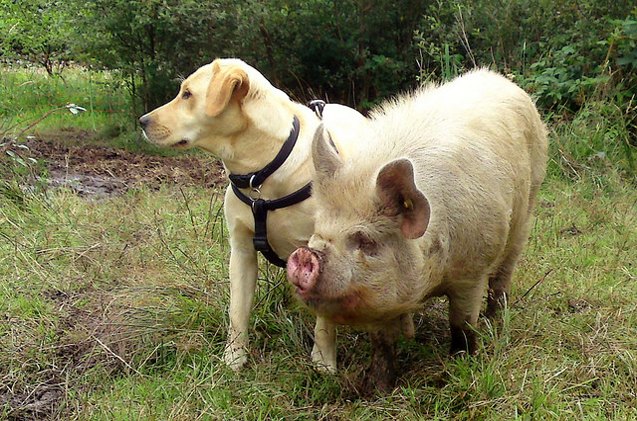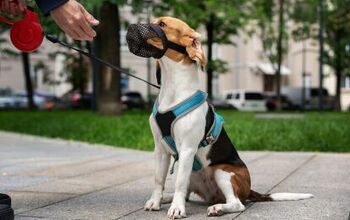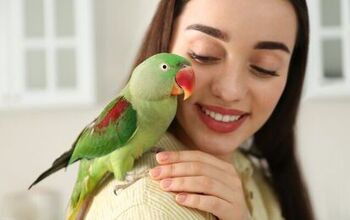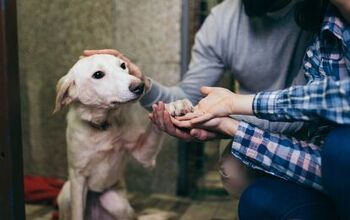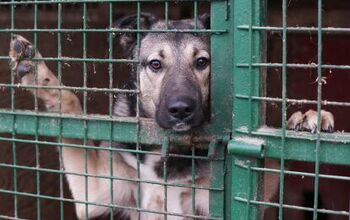New “Pig Perfume” Spray Stops Barking Bad Dog Behavior

Sick and tired of your dog’s endless barking or excitedly jumping on you and your guests when you walk in the door? Well, the solution may come from the unlikeliest of sources.
Enter “Stop That” spray, aka “pig perfume”. The spray was created by Texas Tech animal scientist John McGlone, and the idea came about as a complete fluke. He, too, was getting fed up with his Cairn terrier Toto’s non-stop barking, and happened to have a can of “Boar Mate” spray on hand from a previous study. (Boar Mate does exactly what you would think: it’s a pig pheromone that helps pigs along in the mating process.) Instead of water, McGlone sprayed the pig perfume at Toto and noticed an immediate change: no more barking.
The “secret” ingredient is androstenone, a steroid and hormone produced by male pigs that, when detected by females in heat, makes them find the males more attractive and gets them ready to mate. While the spray has a strong smell, it’s still completely safe for both dogs and humans. And most importantly, it seems to work.
Before releasing the Stop That spray, McGlone and his colleagues tested it out on four different groups of barking dogs who were in separate kennels. They wanted to test how effective the pig hormone was, as well as whether the mere act of spritzing the dog was enough to startle them out of their misbehavior.
The first group of dogs only had a person with another dog standing out in front of the kennel. The second group of dogs was sprayed with a placebo (meaning it did not contain the pig hormone) that still made a loud spritzing noise. The third group was sprayed with a lower concentration of the pheromone in combination with the spritz sound. Finally, the fourth group was sprayed with a higher concentration of the pheromone, again with the spritzing noise.
In the first group, 25% of dogs stopped barking. In group two (spritz sound only), 44% stopped barking. In the third group (low pheromone + spritz sound), 78% of the dogs stopped barking. Group four (high pheromone + spritz sound) saw the most promising results: 100% of the dogs (6 out of 6) stopped barking.
McGlone’s only concern was that the product, being a strong pheromone, might have an impact on the dogs’ heart rate or cardio function; happily, this proved not to be the case. The spray can also be used effectively for cats.
In the meantime, McGlone is continuing his work: he’s now testing pheromones released by dogs, cats, pigs and horse to see if they might work in future products.
[Source: Discovery News]
Photo credit: Jo S/Flickr

Christina Peden is a lifelong animal lover and avid wordsmith. She lives in Toronto with her boyfriend Ryan where they are proud pet parents to puppy, Matilda and cat, Oscar. In her spare time, she can be found enjoying Toronto, Canada's all-too-short patio season, taking advantage of the city's numerous parks or curled up with a good book.
More by Christina Peden



